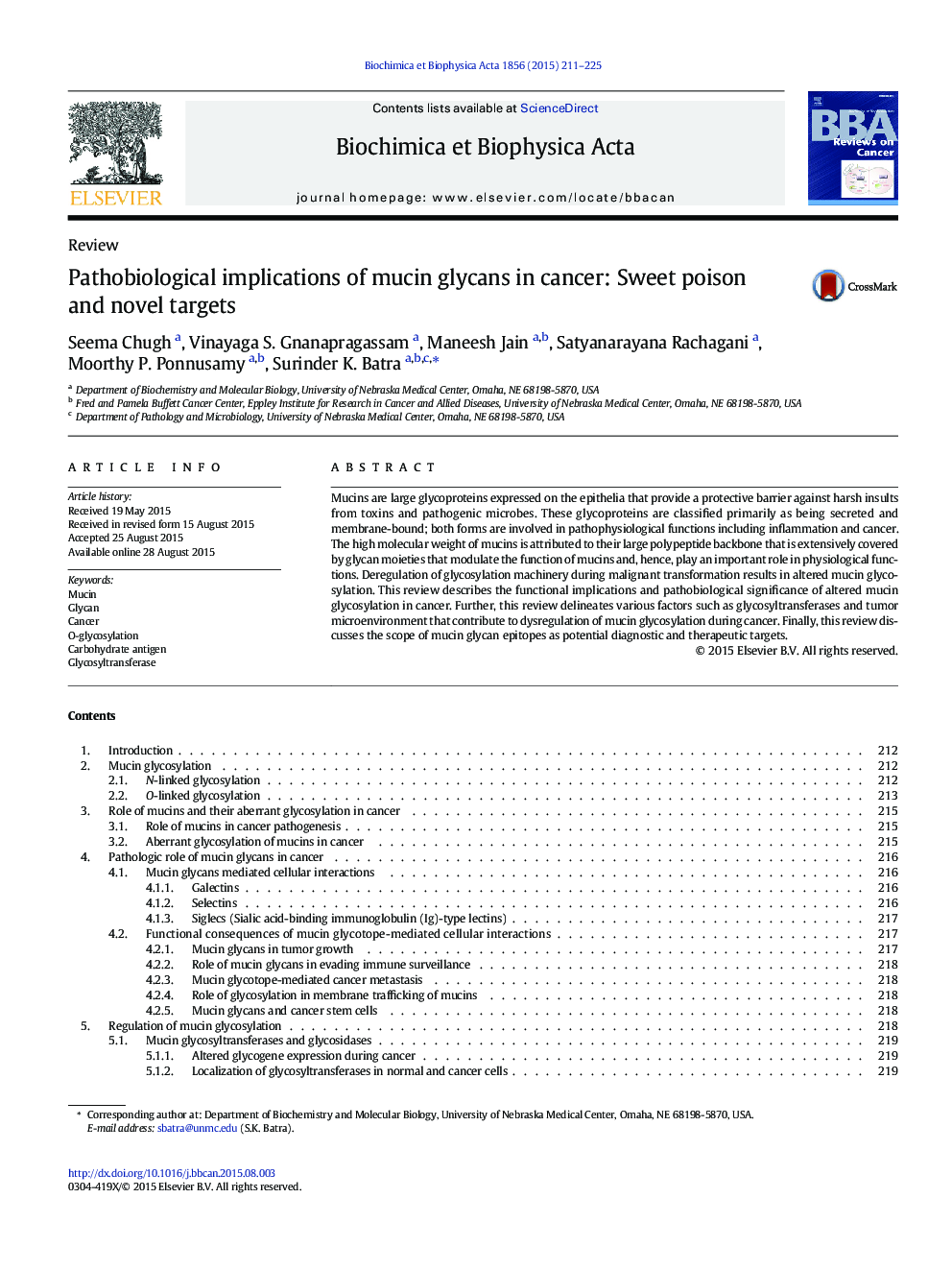| Article ID | Journal | Published Year | Pages | File Type |
|---|---|---|---|---|
| 2100826 | Biochimica et Biophysica Acta (BBA) - Reviews on Cancer | 2015 | 15 Pages |
•Mucins are high molecular weight proteins that are aberrantly glycosylated in cancer.•Deregulated expression of mucin glycans alters biological properties of mucins.•Mucin glycans are involved in cancer growth and metastasis.•Glycans on mucins are clinically important as diagnostic markers.•Further research is needed to target specific glycans on mucins.
Mucins are large glycoproteins expressed on the epithelia that provide a protective barrier against harsh insults from toxins and pathogenic microbes. These glycoproteins are classified primarily as being secreted and membrane-bound; both forms are involved in pathophysiological functions including inflammation and cancer. The high molecular weight of mucins is attributed to their large polypeptide backbone that is extensively covered by glycan moieties that modulate the function of mucins and, hence, play an important role in physiological functions. Deregulation of glycosylation machinery during malignant transformation results in altered mucin glycosylation. This review describes the functional implications and pathobiological significance of altered mucin glycosylation in cancer. Further, this review delineates various factors such as glycosyltransferases and tumor microenvironment that contribute to dysregulation of mucin glycosylation during cancer. Finally, this review discusses the scope of mucin glycan epitopes as potential diagnostic and therapeutic targets.
Graphical abstractFigure optionsDownload full-size imageDownload high-quality image (196 K)Download as PowerPoint slide
